14 Mar 2011 | Uncategorized
Index on Censorship has published the shortlist for the Freedom of Expression Awards 2011.
The 11th annual Index on Censorship Freedom of Expression Awards honour those who, often at great personal risk, give voice to issues and stories from around the globe that may otherwise have passed unnoticed.
This year’s ceremony on 24 March 2011 will be hosted by broadcaster Jonathan Dimbleby at the Royal Institution in London, with a keynote speech by Booker Prize-winning novelist Howard Jacobson. Click here to buy tickets.
Award judges introduce the nominees in each category at these links:
The Bindmans award for Law and Campaigning
The Guardian Journalism award
The Intelligent Life Arts award
The New Media award, supported by Google
Nominees for this year’s awards, presented in association with SAGE, include Egyptian newspaper editor Ibrahim Eissa, British playwright Gurpreet Kaur Bhatti, campaigning Pakistani politician Sherry Rehman and MF Husain, regarded as India’s greatest living artist. There will also be a special commendation, presented by Sir Tom Stoppard.
11 Mar 2011 | Uncategorized
Awards judge Lindsey Hilsum introduces the nominees for the Guardian Journalism award
“In the era of new media, some might think traditional journalism is yesterday’s story, but this year’s entries prove that’s not so. Today’s facebookers and tweeters are building on the bravery and dedicated investigative skills of old-school journalists, many of whom still face persecution. I’m struck by how those on this year’s shortlist don’t give up, whatever the forces brought to bear against them. When their publication is closed down, they start a new one. When released from prison, they start reporting where they left off. They are an inspiration.”
Chiranuch Premchaiporn
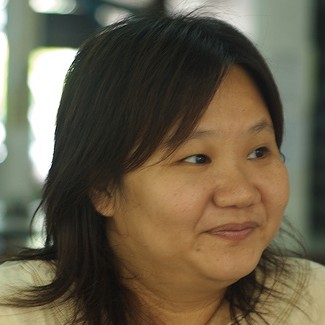 Chiranuch Premchaiporn is the executive director and co-founder of the Thai online news site Prachatai (“Thai people”). She is also a founding member of Thai Netizen Network (TNN), a group of media activists, internet users, bloggers and IT academics who monitor violations of freedom of expression on the internet.
Chiranuch Premchaiporn is the executive director and co-founder of the Thai online news site Prachatai (“Thai people”). She is also a founding member of Thai Netizen Network (TNN), a group of media activists, internet users, bloggers and IT academics who monitor violations of freedom of expression on the internet.
She is currently on trial, facing up to 50 years in jail, for comments posted on Prachatai that were critical of the monarchy. The comments were posted by a user; Chiranuch removed the comments after she was contacted by officials from the Ministry of Information. She is being prosecuted under both the Computer Crimes Act of 2007 and lèse majesté legislation, which makes criticism of the king an offence. The case is seen as part of a crackdown on the media in Thailand, targeting satellite television news stations, community radio stations, print publications and websites aligned with anti-government advocates. The trial resumes in the autumn.
Ibrahim Eissa
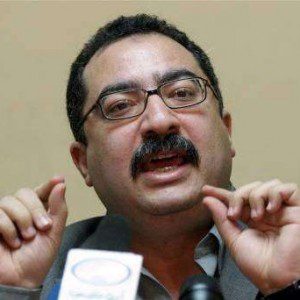 Ibrahim Eissa is Egypt’s leading independent editor, described as a “one-man barometer of Egypt’s struggle for political and civic freedom”. Throughout his career, he has faced prosecution when his push for media freedom has fallen foul of the government. In 2010, he was fired from his position as editor of the independent newspaper al Dostour, after new owners bought the paper; his popular satellite talk show was also taken off air. His sacking came in the midst of a wider media crackdown in the run-up to the parliamentary elections, when Mubarak’s ruling National Democratic Party emerged victorious amid accusations of unprecedented vote rigging.
Ibrahim Eissa is Egypt’s leading independent editor, described as a “one-man barometer of Egypt’s struggle for political and civic freedom”. Throughout his career, he has faced prosecution when his push for media freedom has fallen foul of the government. In 2010, he was fired from his position as editor of the independent newspaper al Dostour, after new owners bought the paper; his popular satellite talk show was also taken off air. His sacking came in the midst of a wider media crackdown in the run-up to the parliamentary elections, when Mubarak’s ruling National Democratic Party emerged victorious amid accusations of unprecedented vote rigging.
When Eissa was sacked from his job last year, the novelist Alaa al Aswany wrote: “Ibrahim Eissa did not oppose the government; he opposed the system … He called for real democratic change through free and fair elections and regular change at the top.
11 Mar 2011 | Uncategorized
Awards judge David Rowan introduces the nominees for the Index on Censorship New Media Award, supported by Google
In a year when WikiLeaks held government activities to unprecedented scrutiny, and Facebook and Twitter empowered citizens in articulating their concerns, the judges sought to honour those especially courageous internet activists who braved hostile conditions to promote free expression. Wen Yunchao, based in Guangdong, has taken huge risks to become one of China’s most outspoken bloggers and campaigners for free speech – not least by organizing a Twitter “Empty Chairs” protest to mark Liu Xiaobo’s winning the Nobel Peace Prize. The activists behind TuniLeaks – a collaboration between Nawaat.org and WikiLeaks – confirmed with cold documents the widely criticised corruption of President Ben Ali’s regime, and helped focus public discontent. The judges recognised the long-term role played by the Tor Project as a means of helping activists bypass traditional censors – whose impact was evident in huge traffic spikes as protests grew in Egypt and Tunisia. Finally, the judges wanted to pay special tribute to Wael Ghonim, a local Google employee detained for 11 days by the Egyptian police, who was revealed to be the administrator of the Facebook page “We are all Khaled Said”. Named for a young businessman who died in Egyptian police custody, the page became a rallying point in the popular uprising.
TuniLeaks by Nawaat
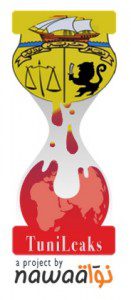 TuniLeaks is a selection of the WikiLeaks State Department cables published by Nawaat.org, an independent group blog run by Tunisian net activists.
TuniLeaks is a selection of the WikiLeaks State Department cables published by Nawaat.org, an independent group blog run by Tunisian net activists.
TuniLeaks, like its parent site Nawaat, is entirely independent and does not receive funds from any political party.
The TuniLeaks cables revealed the extent of the corruption deeply entrenched in many aspects of Tunisian life. Despite attempts to block the site, news of the cables being released swiftly spread around the country and Nawaat helped informal media networks link communities that had been cut off by government censors.
Nawaat highlights how important transparency is in a country like Tunisia, where citizens had for so many years been cut off from vital information and dialogue. “The aim is to get everyone to read, to get an idea and give meaning to the facts provided,” the website states. “The debate is open.”
The Tor Project
Tor enables whistleblowers, dissidents and activists to communicate safely.
It began as The Onion Router project in 2002, originally sponsored by the US Naval Research Laboratory. Among its founders are Roger Dingledine, Nick Mathewson and Paul Syverson.
Designed to increase privacy and security, internet users are able to access censored sites via a third party and conceal their browsing history. Communications via instant messaging are similarly protected. The Tor system is continuously updated and developed in order to address the vulnerability inherent within web-based systems. The software “does not modify, or even know, what you are sending into it”, the Tor site states. “It merely relays your traffic, completely encrypted through the Tor network and has it pop out somewhere else in the world, completely intact.”
The use of Tor technology in Egypt increased fourfold in the weeks leading up to the overthrow of Hosni Mubarak, and a similar pattern was seen in Tunisia.
Wen Yunchao
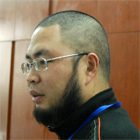 Wen Yunchao is a Guangdong-based internet activist. Writing for platforms including the now banned bullog.cn, Wen established himself as one of China’s best-known bloggers under the alias Bei Feng. He started his career as a news reporter before becoming the editor of Guangzhou’s Yangcheng Evening News website. In 2009, Wen left to research internet censorship. He has spoken about his work as a censor and member of the “50 cent” group (state-funded commenters paid 50 cents for every pro-government comment).
Wen Yunchao is a Guangdong-based internet activist. Writing for platforms including the now banned bullog.cn, Wen established himself as one of China’s best-known bloggers under the alias Bei Feng. He started his career as a news reporter before becoming the editor of Guangzhou’s Yangcheng Evening News website. In 2009, Wen left to research internet censorship. He has spoken about his work as a censor and member of the “50 cent” group (state-funded commenters paid 50 cents for every pro-government comment).
Wen now works to remove restrictions on information and champions freedom of speech. When Southern Weekly editor Chang Ping was fired in early 2011, Wen Yunchao helped spread the word, organising netizens to donate to Chang Ping’s account to show their support. He also organised Twitter’s “empty chairs” event to mark Liu Xiaobo winning the Nobel Peace Prize.
Wen was among the second group of signatories of Charter 08, the manifesto signed by more than 350 Chinese intellectuals and human rights activists.
8 Mar 2011 | Comment, Magazine, News and features, Volume 37.03 Autumn 2008
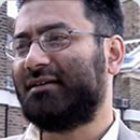
Imam Usama Hasan has been caught up in a storm of religious controversy over his views. In an article from the Index archive, he argues that Islam traditionally embraces debate
(more…)






